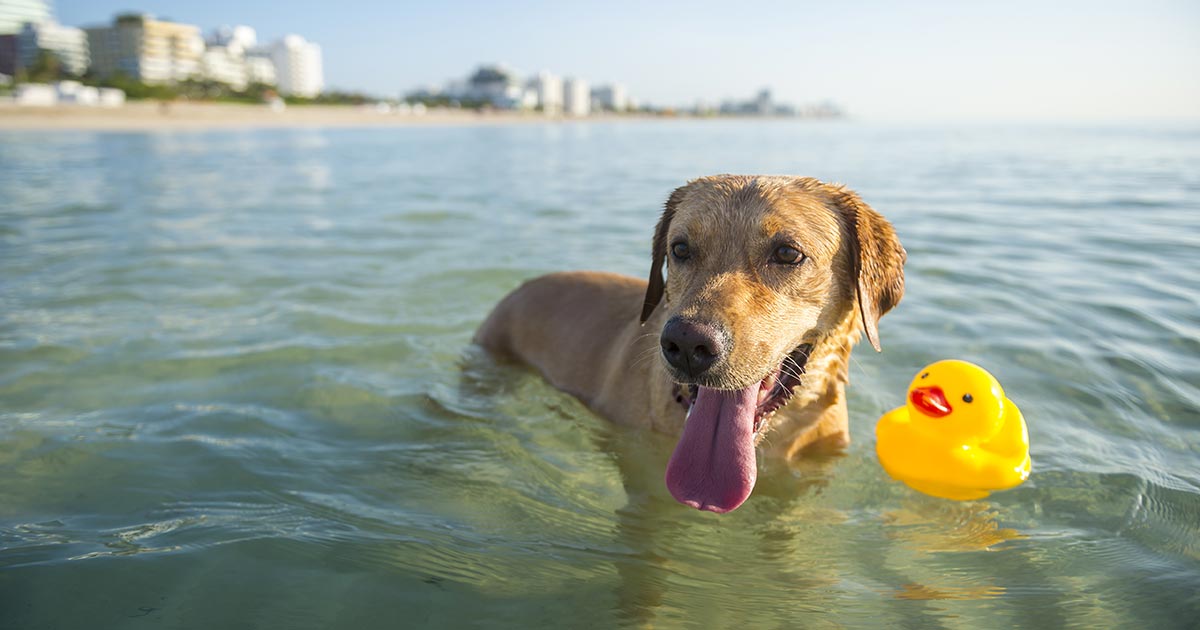The recent hot weather has been fabulous in many ways – my Scottish skin has decided to tan, I’m sea swimming most days and I’m back in my archive – roll on a summer of fun and vet history.
But there is a blot on the landscape that causes my RVN brain some stress during summer.
Dogs swimming in the sea…
Water, water, everywhere
Now, I love seeing dogs swim in the sea. I desperately want Joey to swim and get on my paddleboard (he won’t, but I can hope). Sea swimming has many positives for humans and dogs alike, and it’s a joyful sight.
What does concern me about dogs swimming is how many of them are drinking sea water, trying to catch toys, or simply swimming around grinning and being open-mouthed in sea water.
Besides any worries about water quality there is the real issue of “secondary drowning” or “dry drowning” – both terms the medical profession are trying to change so the common name of this condition is more appropriate.
Drowning
Most people consider “secondary drowning” as fluid gathering on the lungs due to ingestion/inhalation of sea water. The sea water irritates the lung tissue and thus produces oedema, which can lead to the lungs being filled with fluid.
“Dry drowning” is used sometimes to describe this too, but it is more accurate to describe laryngospasm, which can be triggered by ingestion of irritant water.
In either condition, the patient has had contact with ingesting/inhaling water. This happens with both dogs and humans and, from some basic observations, dogs may be more at risk.
It’s all fun and games until…
The dogs I see enjoying the water are all ingesting sea water in some way. There are the ones who enjoy chasing stones or balls thrown into the water, those that just like licking seaweed and other salty objects, and, finally, the ones that seem to adore swimming with their mouth open.
It all looks like fun, but they need to be observed for any signs of lethargy, respiratory issues or general poor health after water contact where they appear to have ingested water.
Just in case
Most dogs probably aren’t swallowing sea water, but there are incidents every summer so please take care. It’s important to check on a history if an unwell patient has spent any time in sea water in the previous 24 hours (there are tales of humans presenting days after an accidental ingestion of sea water, but, in most cases, they were showing illness within 24 hours).
For this summer, consider dry or secondary drowning as a possible cause for illness, and help share this info with dog owners too.

Leave a Reply